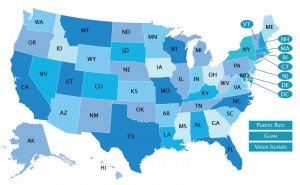 Often, a very well-meaning client will send me an out-of-state case he or she has found online. Upon first glance, the facts, industry and issues in the lawsuit seem to parallel their own employment contract situation.
Often, a very well-meaning client will send me an out-of-state case he or she has found online. Upon first glance, the facts, industry and issues in the lawsuit seem to parallel their own employment contract situation.
The language of the contract at issue in the case might be very similar to their contract. If the court ruled a certain way in Smith v. Company, LLC, then they assume whatever Smith did in the case applies to them, too. EUREKA they cry! This is great news. My contract is VOID!
Wrong. Incorrect. Sorry Atari.
In fact, each state has a different approach to how they examine the reasonableness and validity of an employment contract and its various restrictive covenants (i.e. non-compete and non-solicitation provisions).
When reviewing a Virginia contract, out-of-state court decisions – including North Carolina, Maryland, Tennessee, West Virginia, or even California – have no binding power on Virginia courts.
A contract that is found to be reasonable in Virginia could very well be found unreasonable in a neighboring state.
There is no unified approach to employment contract law or related issues.
So, here is what I advise if you have an employment contract that has either (a) been presented to you for signature or (b) you have already signed:
- Read the contract. Is there a “choice of law provision” toward the end that states which state law applies?
- When you find said choice of law provision, call a lawyer in that state, not the state where you live, or where you work, but the state where the contract says would guide its interpretation.
- Ask that attorney for his or her opinion on the reasonableness and therefore binding nature of your agreement in that state.
Pretty simple, but state law really does matter.
Our office focuses on non-compete agreements for Virginia clients. With few exceptions, we will not provide advice on a contract by reference to another state’s law, so check the choice of law provision in your Virginia contract before deciding on a course of action.
